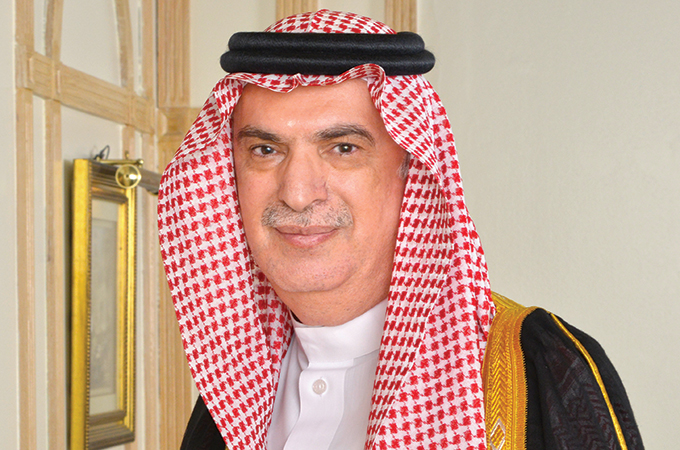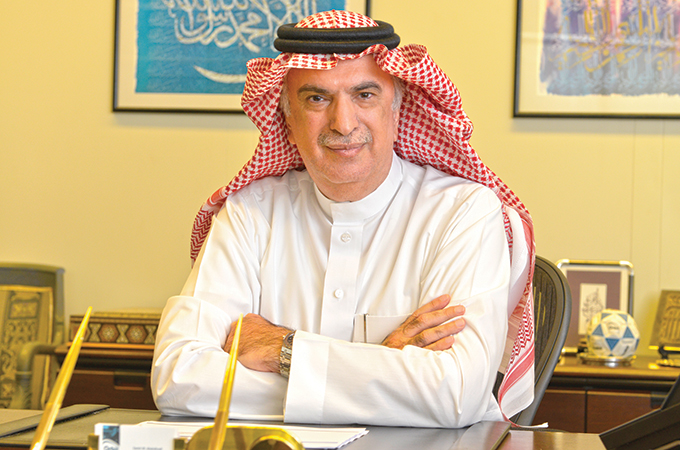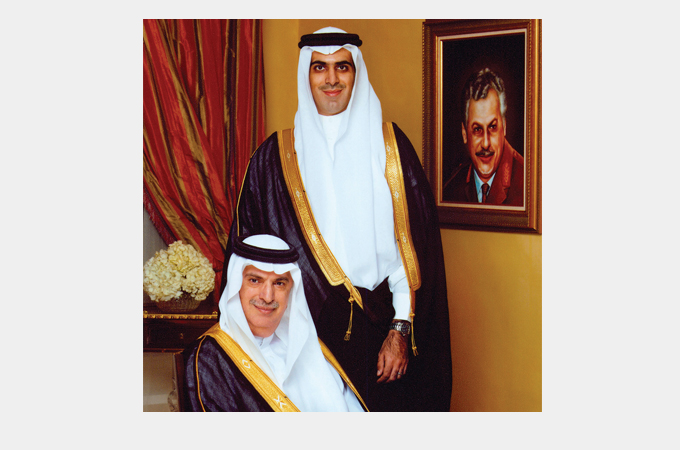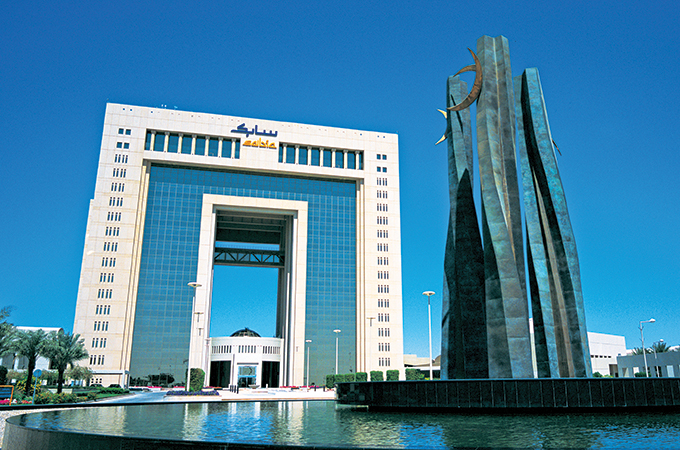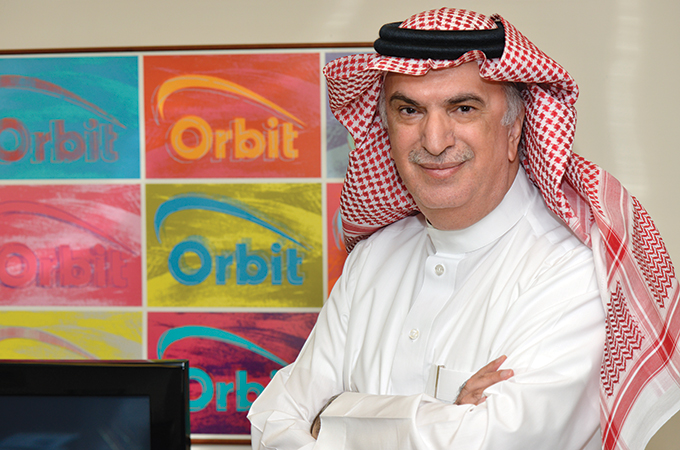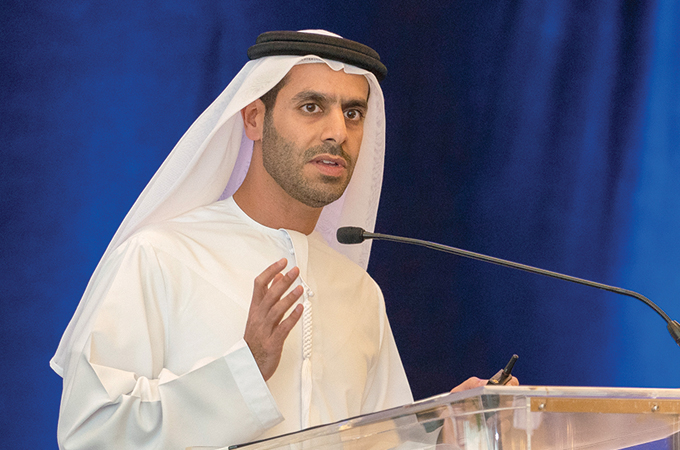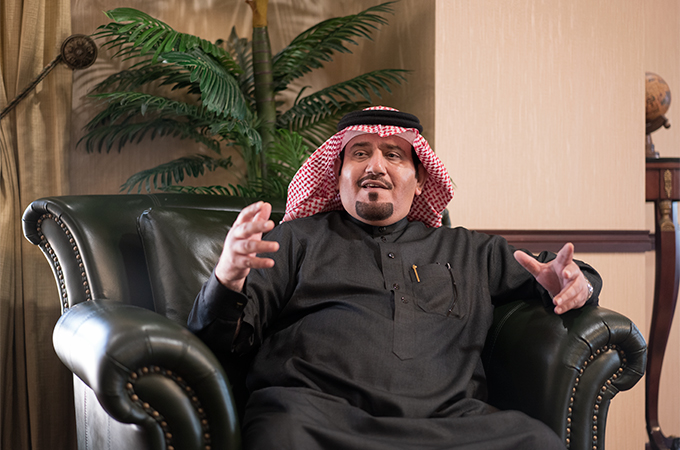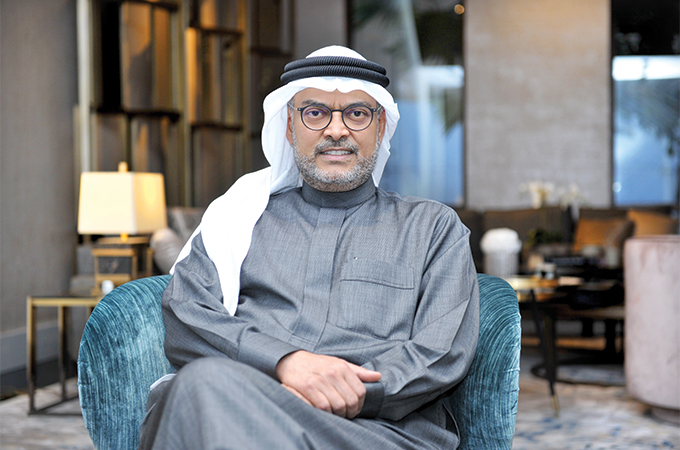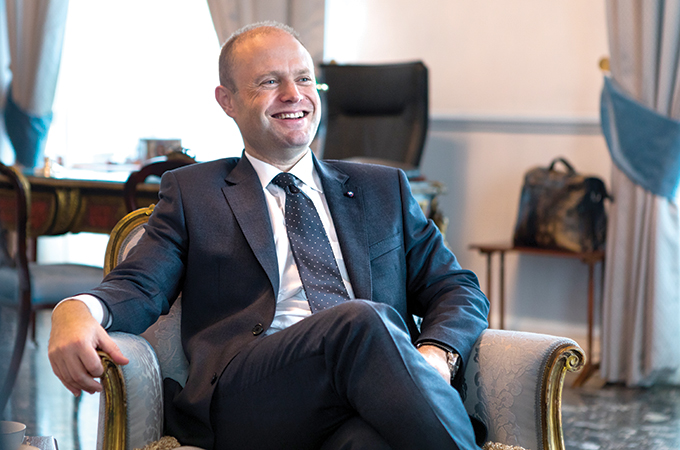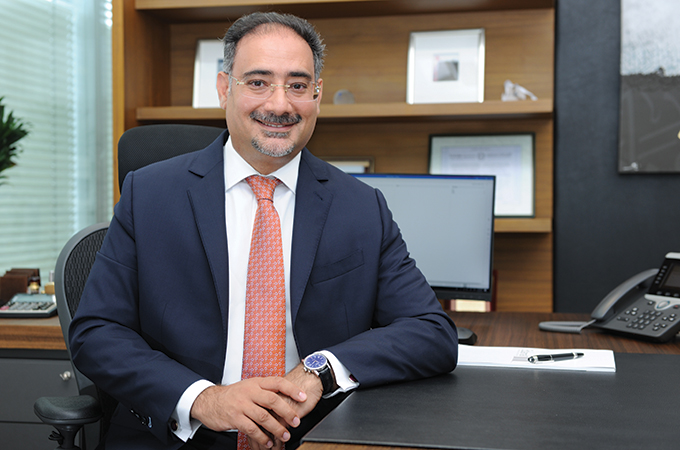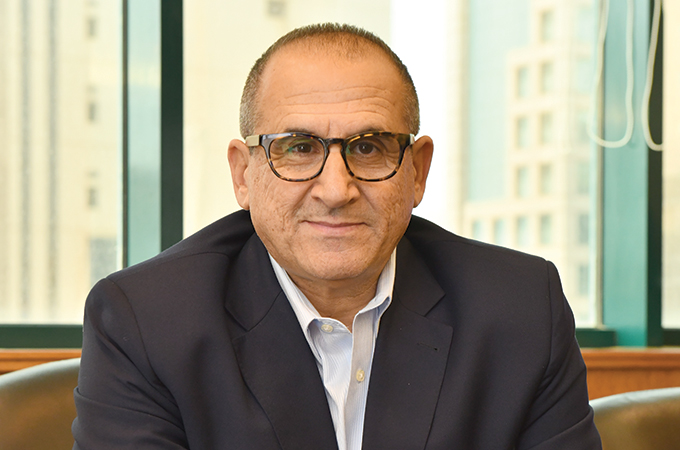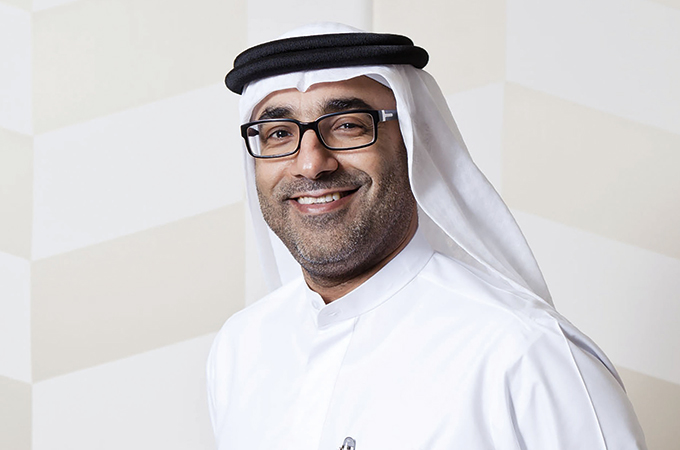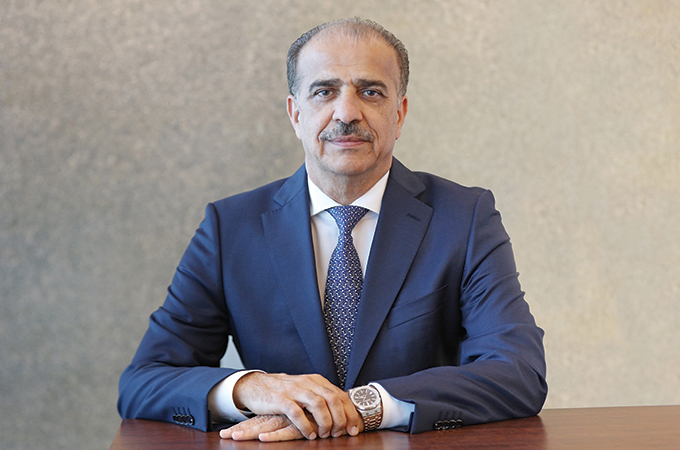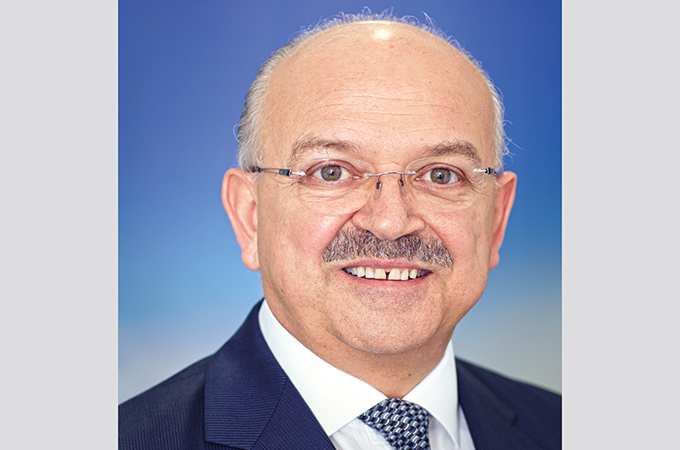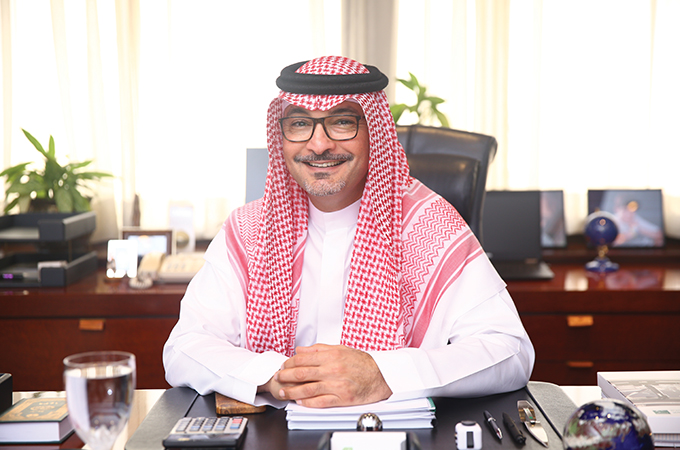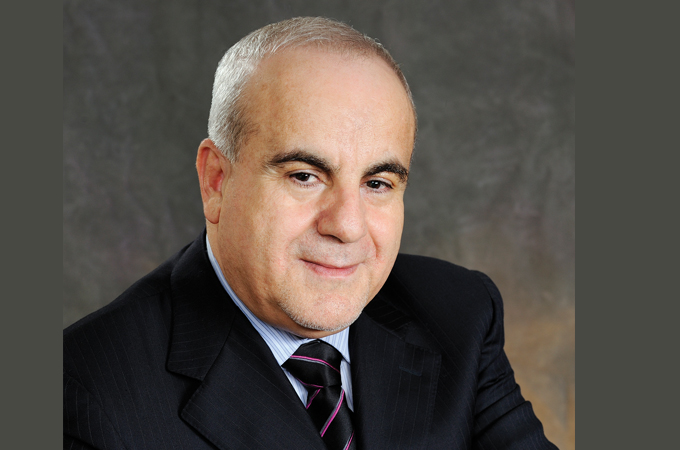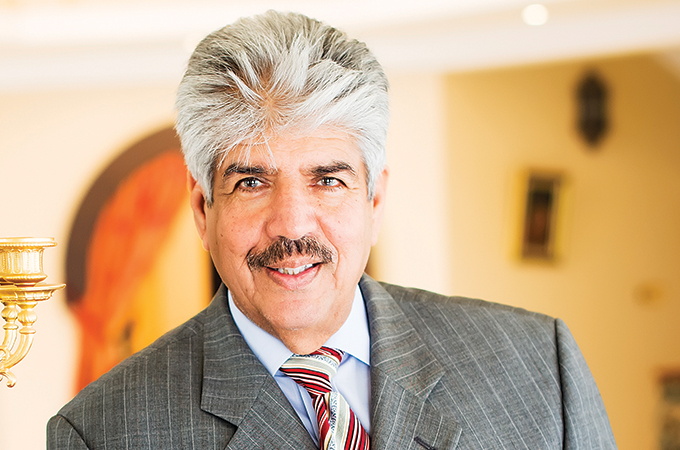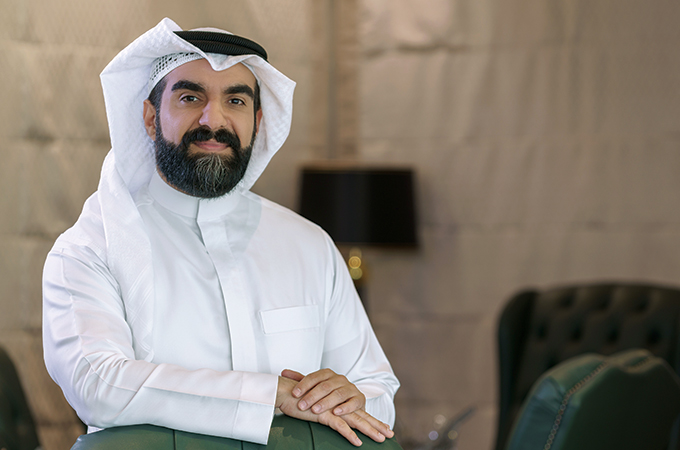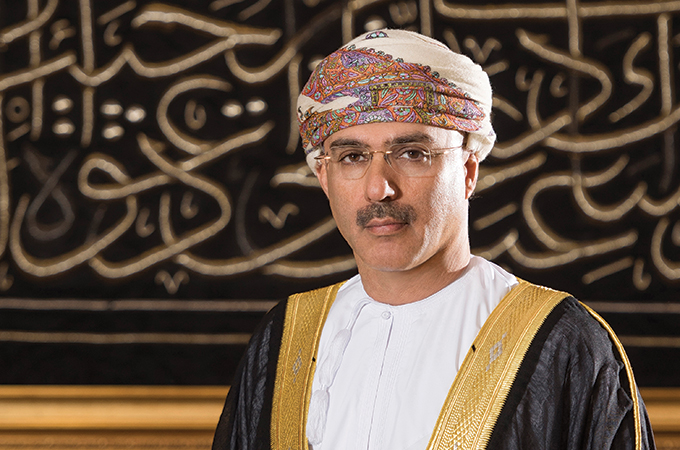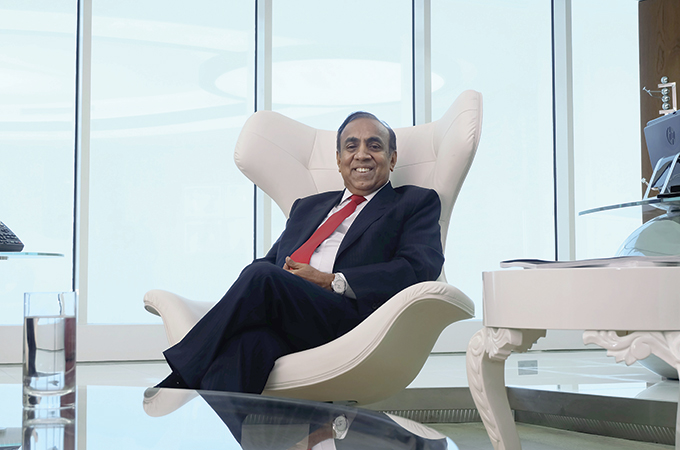Autumn 2015
Samir Mahmoud Abdulhadi’s long, varied and successful career has been driven by a passion for science, technology, innovation and hard work
When Samir Mahmoud Abdulhadi was born, life in Saudi Arabia was very different from what it is today. Whilst growing up in the 1950s, the infrastructural and social development that would later transform Saudi Arabia was only just beginning to shape the modern Kingdom.
Abdulhadi spent his early years travelling across the Kingdom and the Middle East as his father, Mahmoud Abdulhadi, was a top military general who served four Kings of Saudi Arabia.
“Wherever my father was stationed then that was where we lived as a family. My early childhood was spent in Taif and Al Kharj and from 1957 we lived in Amman, Jordan, for three years, where I went to school. Later my family moved to Paris (France) in the 1970s for about six years. Then, I was in the UK continuing my education,” he recalls. “Having lived in several countries has given me the ability to adapt to different situations and cultures.”
He continues: “My father was a great influence on me in terms of learning discipline, the importance of leadership, respect for others, tolerance and also helping people in need. I also owe a great deal to my mother who spent a long time teaching me and my sisters and brothers all of the things that one would normally learn in pre-school through interaction with students and teachers.”
As a young man, Abdulhadi seemed destined to follow his father’s footsteps into the military.
“I was fascinated by aviation and flying and, therefore, a career in the air force was my personal choice. However, my father dissuaded me from a flying career. I did consider becoming a medical doctor but was never really convinced of taking this path. As you become more mature, your outlook changes on where you see yourself being in a few years. One goes through a metamorphosis and as a young man I wanted to do something that was both interesting and rewarding,” he says.
SCIENCE AND TECHNOLOGY
As a student, Abdulhadi loved science and technology and was increasingly looking to a career in this sector.
“In high school I studied for my O and A levels, and naturally England was high on my priority list for continuing my higher education. I strongly believed that a career based around science, technology and engineering would be professionally rewarding, and petroleum engineering had been on my mind at that
time too.”
Abdulhadi decided to study for a master’s degree in petrochemicals and graduated with an MSc from the University of Manchester Institute of Science and Technology (UMIST) in 1976.
“I managed to complete my master’s in one year rather than two and always realised that I could only blame myself if I did not pass. My father also taught me self-reliance in all matters. Additionally, university teaches you to be a lateral thinker, giving you the tools to prepare you for a career in whatever discipline your degree might be in. As has been proven time and time again, graduates have a choice in the way that their minds have been prepared. Engineering students can excel as bankers and equally, humanities graduates can do very well as civil servants, educators and diplomats,” he says.
In 1976, the Saudi Basic Industries Corporation (Sabic) was founded by Royal decree to spearhead the Kingdom’s industrial strategies to convert petroleum by-products into commercially useful chemicals, polymers and fertilisers. Almost four decades later, Sabic is now the largest listed company in the region and one of the world’s largest chemical producers – an industrial powerhouse with revenues of $50 billion per year and more than 40,000 employees.
KEY ROLE IN SABIC
Following his graduation, Abdulhadi was perfectly positioned to become part of the first generation of Saudis to be employed by the-then fledgling Sabic.
“My master’s degree in petrochemicals fitted nicely and was opportune as Sabic had just been formed in the year I graduated. I joined Sabic in early 1977 as employee number twenty one and the challenges were immense. The decade I spent there were the best years of my career. At that time I was dealing with many of the international joint venture partners as the world-scale facilities were being built in Jubail and Yanbu industrial cities. It was quite a revelation on how big industry leaders see the world and how Sabic succeeded despite the many obstacles it faced,” he says.
Abdulhadi was Head of Technology in Sabic at that time, helping develop the production, licensing and commercialisation of various products. This included the licensing of linear low-density polyethylene (LLDPE) and the commercialisation of this versatile and tough product for world markets. Abdulhadi was one of many who made things happen in the early years of Sabic.
“I am proud to have been one of Sabic’s first team and proud of our achievements. This came about through the very clear vision that the Kingdom had established for the utilisation of its natural resources, which meant added value for the Kingdom, the creation of highly skilled jobs and the diversification of the Saudi economy. Today, Saudi Arabia is a major centre of production for basic petrochemicals, steel, fertilisers and major chemicals as well as a global research and development centre,” he says.
After a decade in Sabic, Abdulhadi moved into the private sector joining the Arabian Company for Detergents (DAC) in Riyadh as a shareholder and managing director to energise the business and turn its fortunes around.
He took control of the state-of-the-art manufacturing facility in Riyadh’s industrial city in 1987 when, according to Abdulhadi, there were no marketing and distribution capabilities to speak of. Although at that time DAC had an excellent product line, the company was unable to penetrate retail outlets and depended on selling through the wholesale markets.
“Two years later, DAC was emerging as a major player in the detergents market of Saudi Arabia and the rest of the Gulf with many newly created branded products. It is important in any turnaround to offer top quality products supported by strong marketing plans and to have well established distribution channels,” he recalls.
MOVE TO MAWARID
By January 1991, Abdulhadi had joined the Mawarid Group, one of the largest conglomerates in the Middle East, which continues to contribute significantly to the Saudi economy in media and telecommunications, projects, distribution and trading, investment and financial services as well as energy and natural resources. With a quarter century of responsibilities in top positions of Mawarid, Abdulhadi continues to spearhead strategies in media, food, convenience stores, restaurants, and fragrances and cosmetics across the Gulf and North Africa.
“Mawarid has always been at the leading edge and created the first digital satellite pay television platform in the world. It was also the first to bring the 24/7 convenience store concept to the region, develop the first pan-regional franchises, best-in-class hospital management and pioneer city cleaning. Mawarid will continue to be at the forefront of consumer products and services,” Abdulhadi affirms.
“Being with the Mawarid Group has been and continues to be a great and enjoyable experience,” he adds.
Abdulhadi heads up Mawarid’s Distribution and Trading Group (D&T) as Managing Director, which includes the operations of hundreds of Pizza Hut restaurants in Saudi Arabia, Morocco and Tunisia, Taco Bell operations as well as MEED, the largest convenience store chain in the Kingdom.
Abdulhadi is adamant that success comes from the very best customer service, whether in retail outlets or through the distribution arm of Mawarid Trading in upmarket perfumes and cosmetics, and the Sadco Group in poultry farming and eggs.
“The D&T Group has a presence in the GCC and Lebanon, Egypt, Morocco and Tunisia. We are innovative and always focusing on consumers. Two years ago, we introduced our newest business line, MEED Express hi-tech vending machines, for snacks and beverages. We pioneered this concept from scratch,” says Abdulhadi.
Abdulhadi is very much an innovator, leveraging his knowledge and business acumen across various industries and sectors. He is a member of the Saudi British Joint Business Council and strongly believes that applications in science and technology are where opportunities lie for the Kingdom and the UK.
“Saudi Arabia has achieved a great deal but there are huge opportunities for utilising private capital as facilitated by the government, whether it is solar power, extraction industries or media,” he says.
OSN SUCCESS
As President and Chief Executive Officer of Orbit Group, Abdulhadi and his team have helped spearhead the spectacular success of OSN (formerly the Orbit Showtime Network), the largest pay television operator in the Middle East and North Africa (Mena). Headquartered in Dubai Media City with more than 1,900 employees, OSN was created in 2009 following the merger of Showtime Arabia and Orbit, Mawarid Group’s pay-television business at the time.
“Orbit first launched in May 1994 and was then the first digital multi-channel pay television in the world with Showtime Arabia launching two years later. For the next 15 years, competition between the three pay TV players was fierce, each trying to dominate the Mena pay television industry. In 2009, the shareholders of Orbit and Showtime reached an agreement to merge the platforms, bringing together more than 20 years of expertise in acquiring, aggregating, marketing, distributing, protecting and managing content across the entire pay TV value chain.
“The OSN platform uses leading-edge technology offering the most comprehensive exclusive premium content proposition with pure entertainment for the entire family, including ethnic channels for the very large Indian and Filipino communities in the region. We pioneered high definition television (HDTV) and new technical developments to meet customer demand,” he says.
Media and broadcasting is a highly competitive and fast moving industry sector and Abdulhadi sees great potential for growth in digital media in Saudi Arabia where consumption is already the highest per capita in the world.
“There is a large pool of talented indigenous content producers. If these efforts and talents were aggregated into small business enterprises we could create a content industry catering for the social and digital media. This will add value to the Saudi economy because of the depth of Saudi culture, its long heritage and varied geography,” he says.
Abdulhadi expects OSN’s rapid growth to continue as the various challenges are transformed into opportunities, by staying at the forefront of content, technology and delivery mechanisms to capture changes in viewership habits.
“OSN will continue to build on its consolidated leading position. Pay-television penetration in the Mena region is still very low and, therefore, presents a huge opportunity,” he adds.
Other companies in the Orbit portfolio include Mediagates, Noorsat and Madar FM. Mediagates operates eight television channels and produces and acquires media content and distribution services, including the production of daily live and recorded programmes. Noorsat was the first privately owned full service satellite service provider in the region, reaching all households in the Arab world on the two orbital hotspots of 7°/8° West and 25.5° East.
“As the demand for content increases across all types of devices, the sky is the limit for Mediagates. As one of the leading suppliers of satellite capacity across the region providing connectivity, services and solutions to governments, television broadcasters, telephony and internet companies, Noorsat is in a sector where our growth is only limited by our ability to source capacity. Conversely, Madar FM is, of course, a household name in Saudi Arabia with new offerings under development for 2016,” he says.
LEADING BY EXAMPLE
As a man that has played an important part in the development of successful business lines, Abdulhadi believes in leading by example and is still very much a workaholic, putting in eleven-hour working days. “One must establish a balance between work and personal life and often I am guilty of not doing so. In the little time I have, I like to read about my hobbies which include the motor industry, watches and aviation. I love to watch the news, movies and listen to music. I also like to spend time with my grandchildren whom I cherish tremendously. Both of my children, Mahmoud and Sara, are bankers while my two brothers are also senior banking executives.”
Abdulhadi says that from his experience, nothing comes easy in life, but Saudi Arabia has a large number of talented and educated men and women and the opportunities in the Kingdom are tremendous if one is willing to persevere and ready to take up the challenge.
“Passion, discipline and hard work are ingredients for success anywhere in the world and Saudi Arabia is no exception. There are many opportunities in the private sector. With the various government training programmes, the private sector is incentivised to recruit young Saudis and train them. On-the-job training of young Saudis is a social responsibility that the private sector should wholeheartedly adopt. Its rewards are in the long term, for both the country and the employment market.”
“Leading by example ensures a strong organisational culture in any business. I have worked with thousands of people during my career and I owe a lot to them because without teamwork and the collaboration of my colleagues, success would have not been achieved. A special thanks to all of them,” he concludes.



